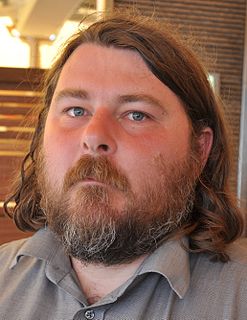Top 27 Quotes & Sayings by Ben Wheatley
Explore popular quotes and sayings by an English director Ben Wheatley.
Last updated on April 15, 2025.
Society is about masks and hiding and pretending to be something that you're not and not opening up, and in acting, you do all of those things, but it also shows the performers in a very raw state. They have to literally upset themselves to get to that position sometimes. You don't need a load of people judging you or not being interested in what you're doing or being an ass on set because it ruins it.
I've had pretty much the same crew for all the films that I've made, and I've managed to have really nice, calm, funny people. That is a big part of it, a family feeling of warmth and finding something interesting and making a platform for them to perform. It's a very difficult job, acting, in that it's totally counterintuitive to how we are brought up.
I tend to shoot really quick so you don't get the problems you might get on a traditional film where you shoot one way, then another, and it's pissing down with rain and they won't cut together. We shoot so fast we can incorporate the weather into it. The worst weather we had was when they were in the caravan up the mountain and there was no cover. One man's weather is another man's production value. To create the sleet would cost a fortune but we got it for free so we'll just have to go with it.
People say, "How do you get into the British film industry?" There is no British film industry, there are just people making films and finding their own way. It's not like in the States where there are studios and there's an actual infrastructure to it; there's just nothing here. You make it from scratch a lot of the time.
If you make a movie in the UK you've got to embrace the weather with open arms... We got some of the most amazing weather as well. It's maybe why some of these places, like the Lake District, don't get filmed in so much. If you were trying to make it look like some kind of chocolate box image of England you'd be there all year waiting for the sun to come out.
I think a big part of my job is to make an atmosphere on set and have an attitude that it's about experimentation, and you can't do anything wrong. It's not about judgment, it's not about me kicking over a chair and storming onto set and acting stuff out and telling people to copy what I do. That is a style of directing some people have, but I don't understand it.






















